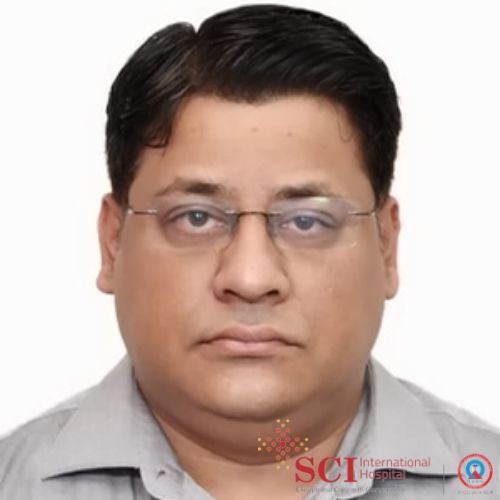SCI Hospital provides expert pediatric and neonatal care for babies, children, and young people—right from birth through early development. Our team includes 24/7 neonatologists, trained nurses, and intensivists who work together to ensure newborns and children receive the most advanced, compassionate care available. With dedicated monitoring, specialized support for high-risk infants, and family-centered guidance, SCI Hospital helps every child begin life as healthy and strong as possible.
We Are Rated
Consult Now
Our hospital has highly trained paediatricians to help deliver the baby and take care of the baby after birth. The newborn's firm examination includes:
After that, the baby is given the first bath, as well as umbilical cord stump is cleaned.
Even proper information about feeding, bathing, and other baby care advice is given to the parents.
We provide exceptional nursing care to newborns, ensuring they are nurtured and supported through the delicate early stages of life. Immediately after birth, a newborn's physiological systems begin developing and adjusting to the new environment, making them susceptible to various diseases and infections. To ensure their well-being, parents require the assistance of well-trained and skilled nurses who can offer specialised care, helping to safeguard their babies during this critical period of development.
As SCI Hospital, we offer superior healthcare services to both new mothers and newborns. We offer specialised care for:
As you age, the problem of erections is quite common. For instance, it may take longer to get an erection or to keep it firm. So, one may require more direct touch to the penis for keeping or getting an erection.
There are also various risk factors contributing to erectile dysfunction, such as:
General paediatricians provide routine care and treatment for children, addressing a variety of diseases, while neonatologists specialise in the care of premature or underweight newborns to enhance their chances of survival and growth.
Both paediatricians and neonatologists play a crucial role in the health and well-being of your newborn and growing child. These specialists monitor your baby regularly from birth until they turn 5 years old. After the age of 5, the paediatrician typically conducts routine check-ups on an annual or monthly basis, ensuring continued health and development.
These responsibilities ensure comprehensive care for children and infants, supporting their overall well-being and healthy development.
Neonatologists usually offer the following care:
Neonatologists work in newborn intensive care units (NICUs) or special care nurseries in hospitals. After an infant is discharged, a neonatologist may offer short-term and follow-up outpatient care, ensuring continued monitoring and treatment. They also coordinate with paediatricians to manage specific health conditions, providing a comprehensive approach to the infant’s care and long-term well-being.
Many would-be parents choose SCI hospital for the best neonatology and pediatric facilities, because:

MBBS, MD - Pediatrics, Pediatrician
Neonatal Intensive Care Units (NICUs) use the following equipment:
Besides, we have the facilities of X-ray, pulse oximeter, CT scan, MRI, Endotracheal tube (ET), Continuous positive airway pressure (CPAP), and a Respirator or mechanical ventilator for monitoring the baby’s health conditions.
Paediatrics is a branch that sees children from birth to adolescence and treats all problems from ear infections to broken bones. On the other hand, neonatologists generally take care of newborn babies to babies aged one year.
A neonatologist is the one who should be consulted in case your newborn baby is not feeling well, as neonatologists specialise in taking care of newborn babies.
Some common neonatal problems are prematurity, respiratory dysfunction, birth trauma, congenital malformations, neonatal infection, and hemolytic disorders in newborns.
Consult Now
